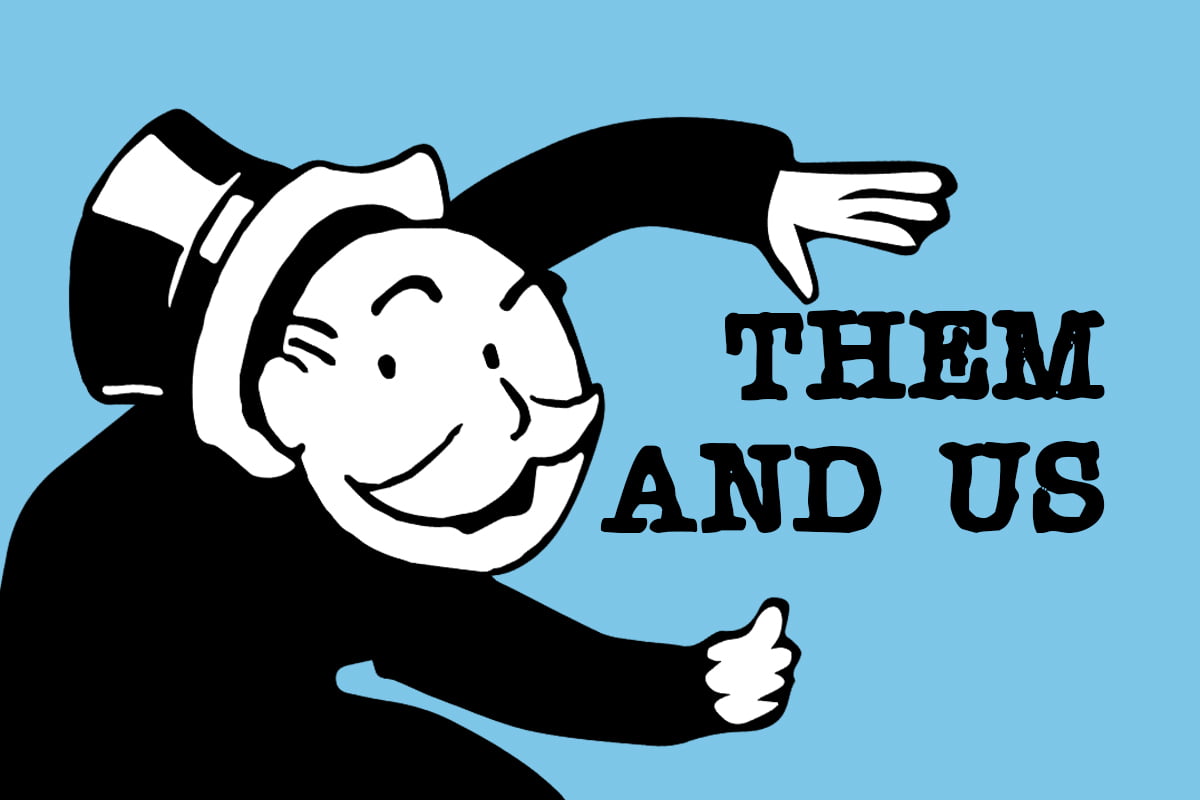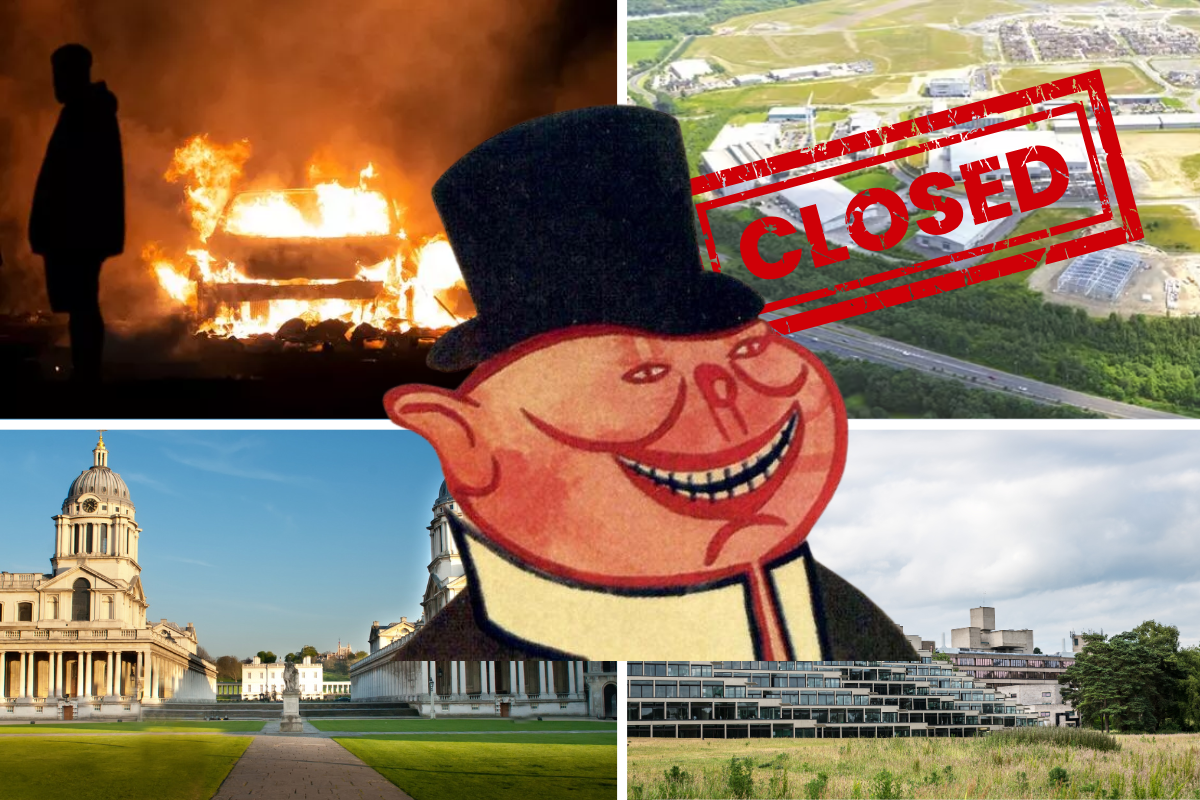Over two weeks after the death of Thatcher, and over one week since her funeral, letters are still coming in describing the celebrations that took place in former mining areas in response to the death of the “Iron Lady”. We publish here two letters from Bob Stothard regarding the mood and feeling amongst working families in Easington, an ex-mining town in Co Durham.
Over two weeks after the death of Thatcher, and over one week since her funeral, letters are still coming in describing the celebrations that took place in former mining areas in response to the death of the “Iron Lady”. We publish here two letters from Bob Stothard regarding the mood and feeling amongst working families in Easington, an ex-mining town in Co Durham.
On Wednesday April 17th the great and the good of British bourgeois society gathered in St Paul’s cathedral to bid farewell to the ‘Iron Lady’. At Easington Colliery, Co Durham, however, the real cream of the working class gathered to celebrate her passing.
Some of those attending could be forgiven for the confusion broadcast over the preceding days as news spread that former pitmen were to have a party celebrating her demise.
The vice-Chairman of Easington Colliery Working Men’s Club stated on TV “There will be no party here. Anyone celebrating Mrs Thatcher’s death will be ejected”. Former lodge secretary of the Easington pit and Durham Miners Association (DMA) Executive member, Alan Cummins, reiterated that sentiment on local TV the day before adding that “a party would be in bad taste”.
As hundreds arrived at the venue where representatives of the mass media hovered in hope, no doubt, of witnessing trouble the mood was at once obvious: a mixture of determination and elation.
Once inside, the DMA General Secretary, Dave Hopper, opened proceedings with the following words:
“Let no one be in any doubt. We are here today for one reason: to celebrate the death of Thatcher!”
The roar of approval from the massed ranks at these words might have been heard in Hexham – the nearest Tory held constituency some fifty miles away.
The scene was one of joy as former pitmen met up with friends and workmates after twenty years, exchanging reminiscences both happy and bitter. The DMA made provision for free food and beer at £1 per pint plus entertainment compered by socialist comedian Mike Elliot.
A moving film – a series of still monochrome photographs of the village during the Great Strike – by Ken Griffin brought cries of recognition and murmured anger as the single shameless blackleg was escorted in by squadrons of Thatcherite police hirelings.
Between times, the DMA Executive met and immediately suspended Alan Cummins pro tem. Cummins, during the Strike and after, hatched a reputation as an enthusiastic communicator with the media. As one acerbic former Executive member dryly noted “If you wanted to kill Cummins, disguise a bus as a camera and he’d jump in front of it.”
All credit must go to Dave Hopper – the best Co Durham labour leader in living memory. After decades of colourless, almost apolitical leaders socialist Hopper has led the union unerringly from the left, never shying away from difficult decisions and relentlessly punching out a class message. Hopper and his Executive intend to campaign throughout the Durham coalfield against issues such as the austerity cuts, the bedroom tax and the anodyne policies of the Labour Party.
At the village’s nearby Colliery Welfare building, an overflow commemoration was simultaneously held remembering the death of the pit twenty years ago to the day. Once more, pound-a-pint beer and free food was provided by the DMA.
Many local women who aided their men, friends and neighbours during the Strike attended, still exhibiting the steely demeanour which saw them through those hard, bitter and life-changing days.
Remembrance of TUC vacillation, Labour Party betrayal, temporary defeat in the class war and police brutality was leavened by unbreakable class solidarity and that special pitmens’ humour which helped overcome the dangers above and below ground for generations.
It should always be remembered Thatcher did not act alone. Whilst she personalised the hatred of her class towards organised labour she was aided and abetted – with malice aforethought – by the likes John Nott, Keith Joseph, Nicholas Ridley et al.
This was an unforgettable event. It engendered a sense of class power and purpose yet to be harnessed by the timid leaders of the Labour Party and some union leaders.
The death of Thatcher has been greeted with great satisfaction by millions of working class people. It should be forever remembered that she and her governments waged a brutal class war against us. That some people should exult in her passing is only to be expected.
Broadcast and print media has united in a saccharine salute to her ‘legacy’. Hardly an opposition voice has been aired. ‘Red’ Ed Milliband and other Labour reformists such as Alan Johnston have also praised her – usually doffing their hats as to her divisiveness as well. Surprisingly, former leader Neil Kinnock has opted not to remark on her passing despite Thatcher privately expressing admiration for the way “he did her work” within the Labour Party whilst leader in defeating the left, not by argument or discussion, but organizationally.
Her funeral was ‘ceremonial’ rather that ‘state’ but no one is able to tell the difference. The cost is thought to top £10 millions to be paid from the public purse in these times of austerity. A hand-picked list of two thousand guests including the rabid Jeremy Clarkson and US-based Joan Collins et al. will attend. Naturally, Tony Blair will interrupt his world-travelling money-making lecture tours to add his adulation to this most spiteful former PM.
When Churchill died in 1965 there were just four speeches made in the House of Commons. His was a state funeral. No friend of the working class (he ordered armed troops to attack striking Welsh pitmen remarking “let the rats get back to their holes” and chasing non-existent Russian anarchists around Stepney) but it is commonly agreed he was an effective wartime leader uniting the country in the fight against Hitler. How, by any stretch, can Thatcher equate with Churchill?
Let us recall she dubbed Nelson Mandela a terrorist, supported the apartheid regime of South Africa, encouraged her son in arms dealing, supported his failed attempts to oust the political regimes in Equatorial Guinea and Venezuela by use of mercenaries, introduced legislation marginalising homosexuals (Section 28), shackled trade union activity, closed down heavy industry, introduced the sale of social housing ensuring a shortage of such dwellings for generations to come, wilfully concealed police blame in the Hillsborough tragedy, utilised armed forces personnel secretly to police and provoke violence in the great miners’ strike of 1984, allowed inflation to rise to 17 percent despite her ‘monetarist’ dogma and let unemployment – officially 3.3 million after government statistics massaging – rise to closer to 5 million.
Paving the way for the disastrous collapse of financial integrity, Thatcher de-regulated exchange controls and the banking industry at large – ushering in the ‘me generation’ in which wealth was flaunted and the poor mocked. Young bankers and brokers swilled champagne in swish London nightspots whilst snorting cocaine and lighting cigars with £50 notes.
Whilst Thatcher was publicly proclaiming she would “never talk to terrorists” behind the scenes her aides were frantically trying to negotiate the cessation of Republican hunger strikes in the Maze prison and elsewhere. Stupidly, the Provisional IRA attempted to assassinate her at the Brighton Tory Conference in 1984. She survived. Overnight she was touted as a heroine – a perfect example of the failure of extra-political tactics: an infantile disorder indeed.
Thatcher’s privatisation of public utilities was, and still is, a disaster. Prices have gone up and up with no discernible gain for the working class consumer. Her successor, the charismatic John Major, topped it all by privatising the railways causing sky-high fares – much to the aggravation of middle class commuters to and from London daily.
Milliband, should he still be Labour’s leader come the next election, would probably sweep the board were he to promise to take these utilities back into public ownership – with no compensation.
It is important to remember Thatcher did not punish the poorest, weakest members of society alone or on a personal whim. She acted in accordance with the demands of capitalism aided, with malice aforethought, by the likes of her political hawks such as Keith Joseph, Nicholas Ridley and John Redwood et al.
Now that the funeral is past, those fawning BBC newscasters have put away their black ties and raiment and the have political class stopped their wallowing in her demise, we must hope Labour will find a leader to fight for our class as furiously as she fought for hers.






